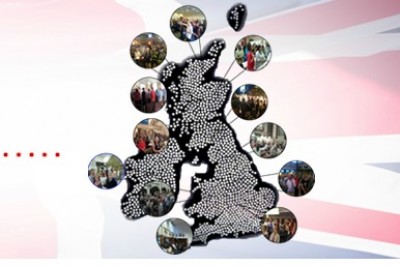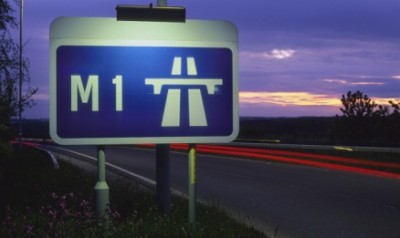National Prayer Retreat
28 Oct 2015We want to encourage you to register and book as an individual, a member of a local church, as an intercessor, as part of a network, group, leadership team or minister for the National Prayer Retreat.
This gathering is purely for those who are longing to see more prayer and manifestations of the Kingdom flood the British Isles. The Lord told us to open this to the nation and He will draw those He has nudged or spoken to there. Are You one of those?
The National Prayer Retreat will be at (NOTE CHANGE OF ADDRESS):
The Selsdon Park Hotel & Golf Club,
126 Addington Road, South Croydon,
Surrey,
CR2 8YA,
England,
Bookings are already coming in from across the nation and I want to make sure your town, city or region is represented.
Starting with supper at 6.30pm Thursday 12th November and departing at 4pm Saturday 14th November 2015. Please book your place today.
The Conference is FREE but each person is required to cover their accommodation and feeding costs,
There are various ways to attend:
1.Full Conference
Please book bedrooms by quoting 'FOUR121115'. The cost is (Double Occupancy @ £140.00 per person) (Single Person Occupancy @ £170.00 per person) for the whole conference.
To Book Please Click Here
2. Day Rate (With no accomodation)
To book as a day visitor We are now pleased to be able to offer a Day Rate, (with No overnight accomodation included) for those who wish to attend the Prayer Conference 2015, but are either unable to stay overnight, or would prefer to travel in on a daily basis.
Friday 13th November 2015 9.30am - 9.00pm £37.00 per person including VAT (to include Lunch, Dinner & Teas/Coffee)
Saturday 14th November 2015. 9.30am - 4.00pm £23.00 per person including VAT (to include Lunch & Teas/Coffee)
Friday & Saturday 13th & 14th November 2015 £60.00 per person including VAT (to include Lunch & Teas/Coffee)
To book please click here
3. Two Day Rate (With one nights accomodation)
To book as a day visitor We are now pleased to be able to offer a Day Rate, (with overnight accomodation included)
The cost is (Double Person Occupancy @ £84.00 per person)
(Single Person Occupancy @ £99.00 per person)
The cost includes Lunch, Dinner and Overnight Accomodation on Friday, Breakfast and Lunch on Saturday, unlimited tea, coffee, biscuits and access to Wi-Fi
We are particularly interested in young people joining us so consider sponsoring a promising younger person to represent your church or network or group. The coming Move of God is going to combine the younger and older generations running together! Start mentoring, raising disciples and protégés as well as Sons and Daughters in the Lord. This is a Word from the Lord.....Malachi 4:6
Jonathan Oloyede
Convener of the National Day of Prayer & Worship
Praying for the M1 Corridor
28 Oct 2015Acts of Prayer
Praying for the M1 Corridor
Saturday 14th November 2015 – dawn 'til dusk
Introduction
Over the summer of 2015 I had a growing sense that God was asking me to encourage prayer for the M1 Corridor in the UK. Having spent months pondering this and praying about it I now have a clearer idea as to why and how this should be done.
Why pray for the M1 Corridor?
The M1 was the first motorway to be built in the UK. It connects the north of England (Leeds) to the South (London). On a map it clearly runs through the heart of England. For these reasons I believe the M1 Corridor is a symbol of the heart of these isle and God wants to touch that heart with the reality of His kingdom.
What to pray for the M1 Corridor?
- For God's Kingdom to come and God's will be done in the lives of all who live in the communities (large and small) near the M1 Including: Leeds, Sheffield, Chesterfield, Nottingham, Derby, Loughborough, Leicester, Rugby, Northampton, Milton Keynes, Luton and London.
- For all who work on and use the M1 including the emergency services.
- That God would heal the heart of the UK.
- For an outpouring of the Holy Spirit across the geographical area of the M1 Corridor where many may come to faith in Jesus Christ.
How to pray for the M1 Corridor?
There are many different ways of responding to this call to pray including:
- Praying in a church building or home near the motorway.
- Standing over or beside the motorway (on a bridge).
- Driving on the motorway, perhaps for just a few junctions and back.
- At one of the many service stations on the motorway.
- Praying in numerous locations in one of the communities that straddle the M1.
A prayer for the M1 Corridor
Heavenly Father, Lord God Almighty, as the M1 Corridor runs through the heart of England, we ask you to renew the heart of these lsles.
Touch the lives of all who live by, travel or work on the M1. May many come to faith in Jesus Christ and know the life, love, light and liberty of His saving grace.
We pray especially for all who live in poverty, the homeless, the exploited, orphans, the bereaved, those bound by addictive lifestyles, all who are poorly, the dying and this generation of children and young people. Bless them all with your protective healing peace. Amen.

Contact: Rev Tim Sumpter – This email address is being protected from spambots. You need JavaScript enabled to view it.
If you organise a prayer event, please let me know; thank you and blessings!!
Talking Jesus
28 Oct 2015Talking Jesus is research conducted by the Barna Group on behalf of the Church of England, the Evangelical Alliance and HOPE. The research summarizes people's perceptions of Jesus, Christians and evangelism in England and asked questions such as – What do people in this nation know and believe about Jesus? What do they really think of us, his followers? Are we talking about Jesus enough? And when we are, are we drawing people closer towards him, or further away?
'What this study reveals is that people are far more open than we might realise. After we've had conversations with non- Christians about Jesus, one in five of them is open to finding out more about him. The majority of people in this country still identify themselves as Christian, although they are not practising. The people who know us like us. They think we are caring, good humoured and friendly. They are open to us and they're open to Jesus.'
'We are believing, hoping and praying that this study - the first of its kind - will be a major catalyst for effective and focused evangelism in the years to come.
Read the research www.talkingjesus.org . Resources for 3rd January Talking Jesus PrayerCall will be available from mid November.
Jane Holloway
World Prayer Centre
Keep Blessing
28 Oct 2015A 40 day guide to help change the spiritual atmosphere over your village, town or city
Jill Gower – Director of Call to Prayer Norwich This email address is being protected from spambots. You need JavaScript enabled to view it. £3.00 + postage
This is the latest prayer resource in the Keep Blessing series using proclamations, scriptures, declarations and blessings to speak over our communities. It is very timely and links in with our sense that it is very important to raise up the name of Jesus over our communities and nation at this time. It includes new prayers and blessings based on Deuteronomy 28, Psalm 91 and the Lord's Prayer and each day's material is based on one of the names of our Lord.
A Biblical Testimony
13 Nov 2013This animation showcases how the children of the Bible not only influenced their generation, but ours as well. Children have more potential than society today recognizes, but God has never forgotten the children. He gave them parts to play throughout the Bible and it is time for the body of Christ to wake up and invest in children's lives and futures.
Turning a Curse into a Blessing
11 Oct 2013Dr. Dan Brewster, Director of Holistic Child Development Academic programs for Compassion Int, finds that very few seminary students know what the very last verse in the Old Testament is, much less why it's so important today. Check out this animation to hear his thoughts.







